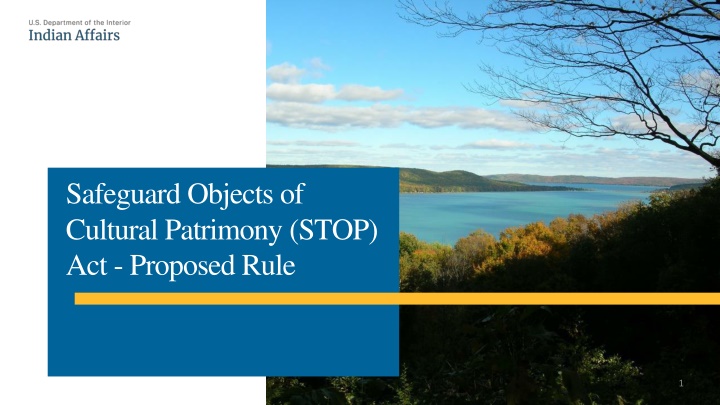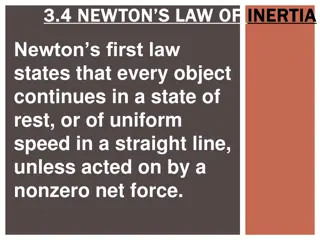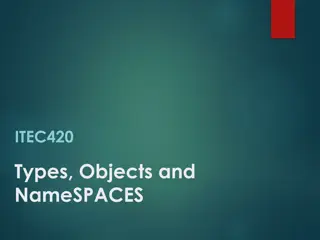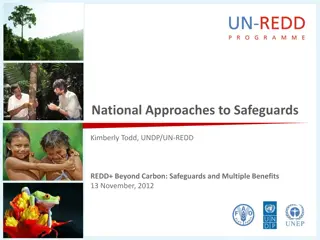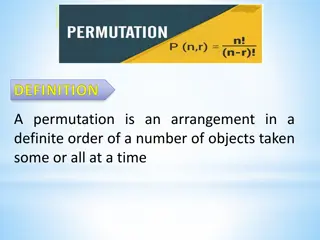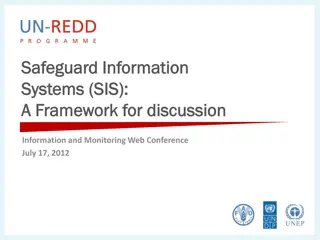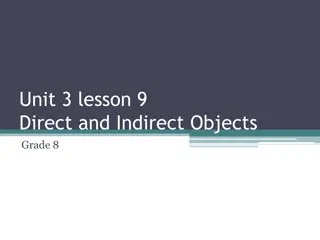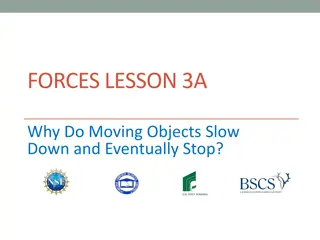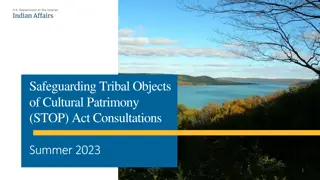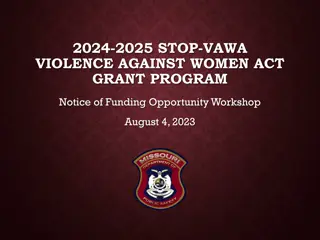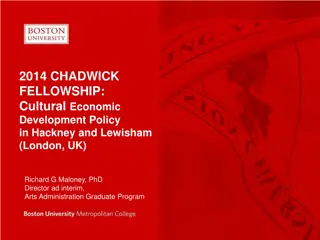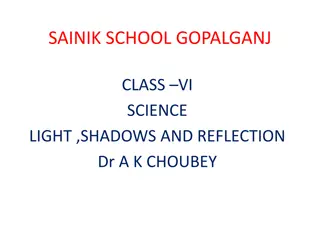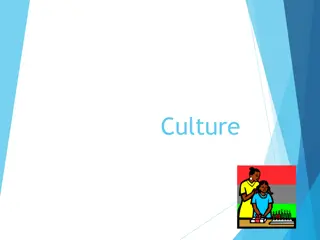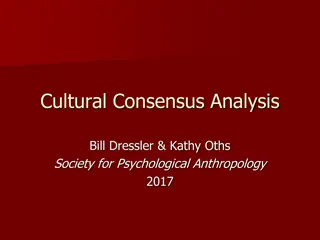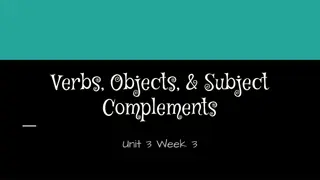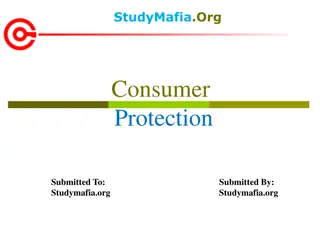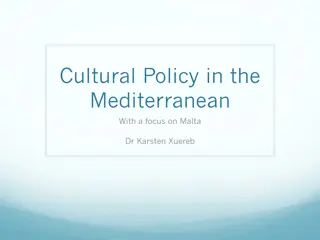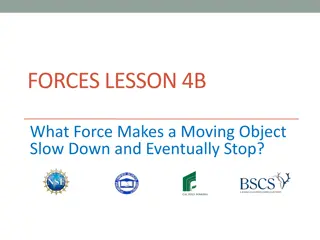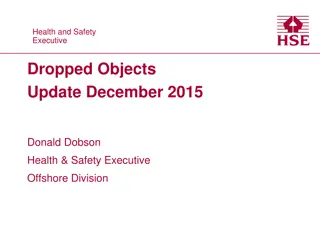Safeguard Objects of Cultural Patrimony (STOP) Act Overview
The STOP Act, signed into law in November 2022, aims to prevent the illegal export of cultural items and archaeological resources. It directs various government agencies to regulate exports, facilitate returns to tribes, and operate a program to issue export certificates and manage repatriation efforts. The development of draft regulations and proposed rules are key steps in implementing the Act.
Download Presentation

Please find below an Image/Link to download the presentation.
The content on the website is provided AS IS for your information and personal use only. It may not be sold, licensed, or shared on other websites without obtaining consent from the author.If you encounter any issues during the download, it is possible that the publisher has removed the file from their server.
You are allowed to download the files provided on this website for personal or commercial use, subject to the condition that they are used lawfully. All files are the property of their respective owners.
The content on the website is provided AS IS for your information and personal use only. It may not be sold, licensed, or shared on other websites without obtaining consent from the author.
E N D
Presentation Transcript
Safeguard Objects of Cultural Patrimony (STOP) Act -Proposed Rule 1
STOP Act Overview: STOP Act Overview: Signed into law on November 29, 2022, enrolled as Public Law 117-258. Prevents the illegal export of cultural items and archaeological resourcesunder the Native American Graves Protection and Repatriation Act (NAGPRA) and the Archaeological Resources Protection Act (ARPA). The law directs Interior, with State, Justice, and Homeland Security to: Regulate export of tribal cultural items; Facilitate voluntary return of tangible cultural heritage to Indian Tribes and Native Hawaiian organizations; and Operate a program (authorized up to $3 million annually) to issue export certificates and work in consultation with consulting with Tribes on the repatriations efforts under the Act, managing databases and workflows, collecting fees and fines, and coordinate interagency implementation. 2
Development of Draft Regulations: Development of Draft Regulations: DOI convened seven consultations from May 2023 to Sept 2023 to receive Tribal feedback about: Which Assistant Secretary, Bureau, or office within DOI should be responsible for the STOP Act Program; What types of interagency agreements would be helpful for the program and for Act implementation; and What should or should not be included in the draft regulations. DOI convened a working group of staff from DOI, DOJ, State, and Homeland Security to prepare draft regulatory language based on consultation feedback. That working group achieved a general consensus on the draft regulations. 3
Proposed Rule: Proposed Rule: The proposed rule would implement the STOP Act by: 1. establishing an export certification system; 2. setting forth procedures for detention of items subject to the rule and repatriation of those items; 3. establishing a framework for voluntary return of items subject to the rule; and 4. establishing interagency and Native working groups. 4
Framing Questions: Framing Questions: As a starting point for discussions DOI poses the following questions: Topic 1: Subpart B Export Certification System Do you have any concerns with the process or associated timelines for reviewing and approving an Export Certification under Subpart B? Topic 2: Subpart E Voluntary Return of Tangible Cultural Heritage Do you have any concerns with the process outlined under Subpart E for the voluntary return of cultural items? Specifically, how do you think DOI, State, and Homeland Security should facilitate this voluntary return process? 5
Topic 3:Subpart G Native Working Group Do you have any concerns related to the purpose, function, membership and duties of the Native Working Group under Subpart G? Topic 4: Export Certification Database and Protecting Confidential Information Do you have any concerns related to the Export Certification Database under 1194.107 of Subpart B? Specifically, do you have any concerns related to the information being made available to Tribes, Native Hawaiian organizations, and relevant Federal agencies though the database? Do you have any concerns with the current procedures for protecting information deemed culturally sensitive? Do you have any suggestions for how DOI can better protect confidential information or what types of specific information should be protected?
Questions? Please provide written comments toconsultation@bia.gov by 11 :59 pm ET on December 24, 2024.
